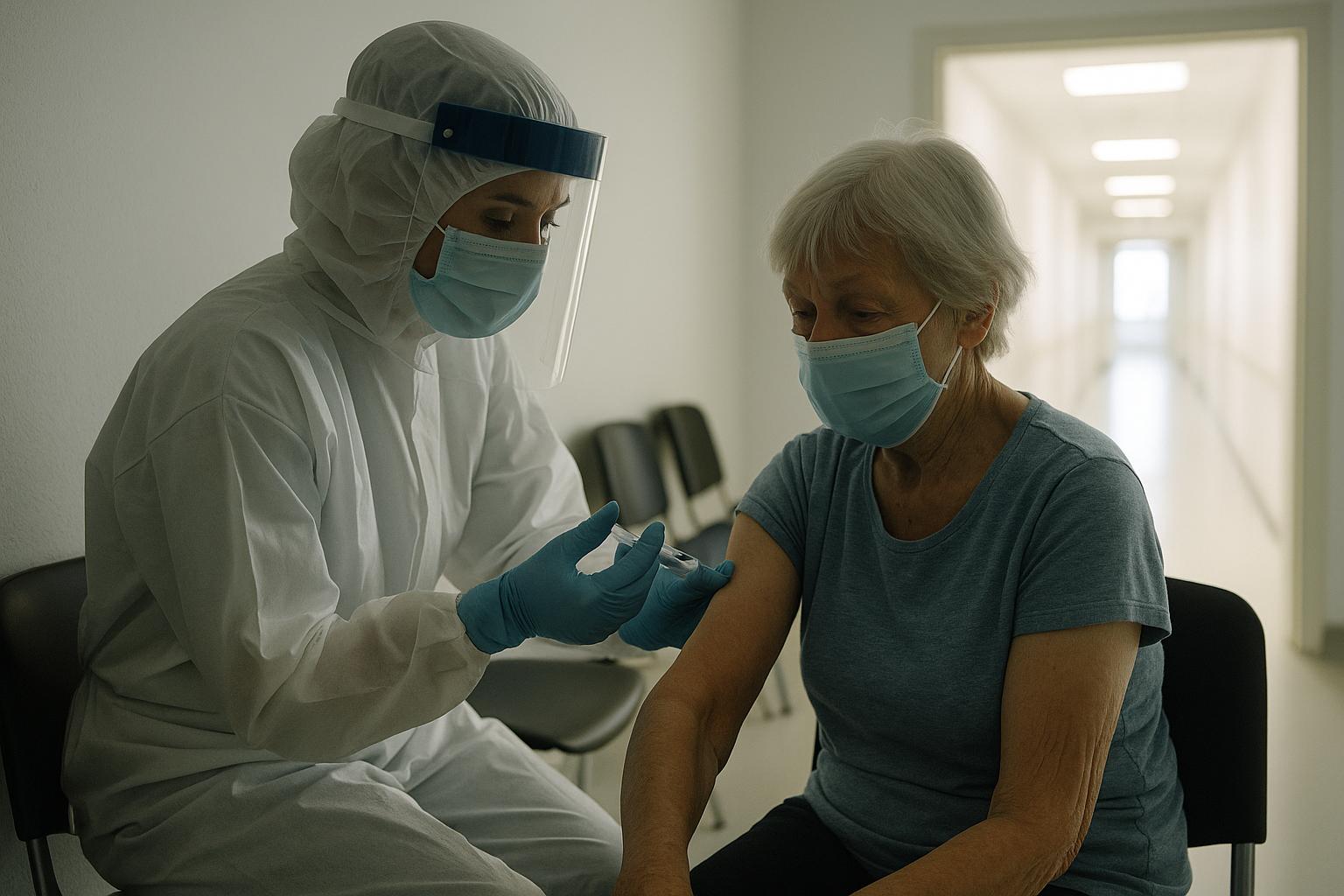The NHS has issued an urgent alert to four key groups identified as being at higher risk of contracting flu this winter, as cases of the virus have begun rising earlier than usual across the UK. The health service has observed a notable increase in flu infections, particularly among children, prompting a call for those eligible to get their flu vaccinations promptly to protect themselves and others from serious illness.
Taking to the social media platform X, the NHS emphasised that "flu is on the rise" and warned that it can be particularly severe for vulnerable groups such as children, pregnant women, older adults, and individuals with long-term health conditions. The organisation urged these groups to access their free vaccinations via GPs, pharmacies, or the NHS App to help prevent complications and reduce transmission. NHS England further confirmed that this year’s flu season arrived earlier than expected, with rising cases driven by infections spreading among children. To address this, vaccination clinics have been set up in community venues including bowling alleys, libraries, and sports halls, especially during the school half-term break.
Data from the UK Health Security Agency (UKHSA) highlights a concerning trend, with recent figures showing flu activity rising above baseline levels, especially in children. The weekly mean positivity rate for flu tests in hospitals increased from 5% to 6.1%, while hospital admissions linked to flu rose from 1.29 to 1.73 per 100,000 people. Duncan Burton, Chief Nursing Officer for England, remarked on the serious implications of this early surge. Speaking about the impact on children, he noted, "Flu can spread like wildfire across schools and can make children really unwell," stressing that annual vaccination remains the best defence against evolving flu viruses.
The NHS offers the flu vaccine free of charge to several priority groups in line with guidance set out for the 2024/2025 flu season. These include everyone aged 65 and over, pregnant women, children aged two and three years, school-aged children from Reception to Year 11, and those with certain long-term health conditions. Also eligible are residents in care homes, certain carers, frontline health and social care workers, and people living with individuals who have weakened immune systems. From October 3, eligibility extends to adults aged 18 to under 65 in clinical risk groups, reflecting the broad approach to targeting those most vulnerable to severe illness. The vaccine's protective effect is critical because flu can lead to serious complications, especially in these higher-risk populations.
In response to continuing flu circulation, plans have been announced to widen eligibility further. From mid-January 2025, the seasonal flu vaccine will be offered to everyone aged 50 to 64 years, aiming to provide protection across a wider age range as flu activity remains elevated. Public health authorities stress that vaccination not only shields individuals but also helps curb the spread of the virus within communities.
Preventing the spread of flu hinges on more than vaccination alone. The NHS emphasises practical steps such as regular handwashing with soap and warm water, covering coughs and sneezes with a tissue or the elbow rather than hands, and prompt disposal of used tissues. Individuals experiencing fever or severe symptoms are advised to stay at home to avoid spreading the infection. Given that flu viruses can survive on hands and surfaces for up to 24 hours, these precautions are vital to control transmission during the peak flu period.
The relationship between early flu activity and the spread among children is particularly noted, as schools act as hubs for the virus, facilitating rapid transmission. The NHS and UKHSA remain vigilant, monitoring infection rates and hospital admissions as the winter progresses, encouraging all eligible individuals to receive their flu vaccine annually. This proactive approach is reinforced by ongoing public health campaigns aimed at mitigating the burden of flu alongside other winter illnesses.
In summary, as flu cases surge earlier than usual, the NHS is urging the four primary at-risk groups—children, pregnant women, older adults, and those with long-term health conditions—to get vaccinated without delay. Expanded eligibility and community outreach initiatives reflect the health service’s commitment to reducing serious flu illness and protecting public health throughout the colder months.
📌 Reference Map:
- Paragraph 1 – [1] (Get Surrey), [5] (UKHSA)
- Paragraph 2 – [1] (Get Surrey), [5] (UKHSA)
- Paragraph 3 – [1] (Get Surrey), [5] (UKHSA)
- Paragraph 4 – [1] (Get Surrey), [3] (UK Government), [5] (UKHSA)
- Paragraph 5 – [4] (Public Health Agency), [6] (Public Health Agency)
- Paragraph 6 – [1] (Get Surrey), [2] (NHS.uk)
- Paragraph 7 – [1] (Get Surrey), [5] (UKHSA)
- Paragraph 8 – [1] (Get Surrey), [5] (UKHSA)
Source: Noah Wire Services
